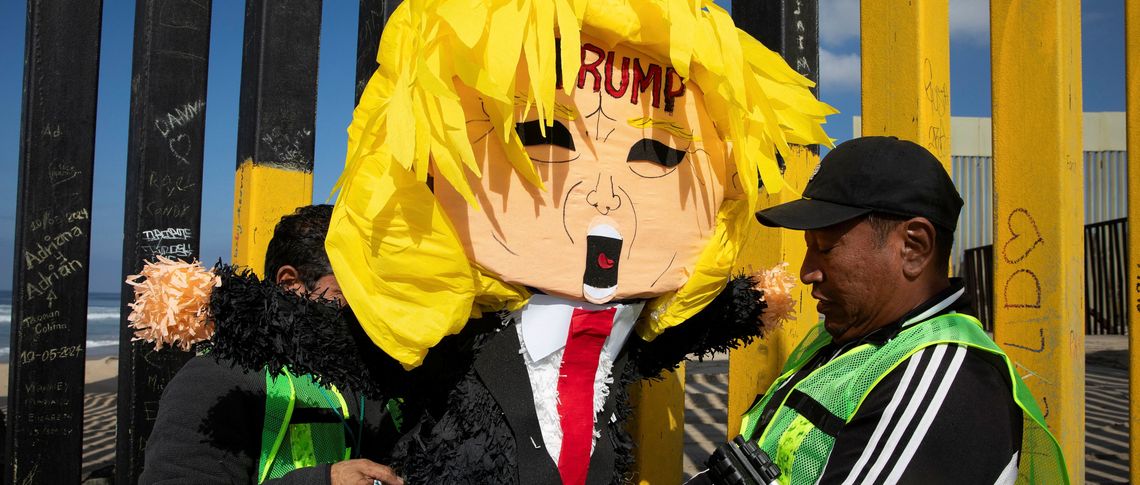In the last 100 days, the deeply rooted and obsolete idea that Latin America and the Caribbean (LAC) is still a natural US sphere of influence has been tested once more. President Donald Trump’s misguided and coercive foreign policy will most likely deliver the final blow to the notion that the region is indisputably under the United States’ exclusive control. If a sphere of influence means that a major power has nearly full control – politically, culturally, economically and militarily – over a given geographical area, then Washington will decisively lose that alleged sway in LAC.
Since the beginning of Trump’s second term, the region has been treated like a control workshop, with an avalanche of bullying actions deployed by criminalising migrants, dehumanising deportees, threatening territorial expansion, weaponising trade, warning of military interventions, insulting nations and mistreating leaders. These practices can resonate in the MAGA coalition, while the Democrats have stood silent. Short-term muteness in the region does not mean consent: in fact, it suggests that Latin Americans are becoming more conscious that the world is larger and could be better than the US selfish promise of a golden age.
The United States has turned into a bizarre revisionist player and as such, it has aggressively expressed its dissatisfaction with the prevailing international order and the distribution of power. What is unusual for a revisionist state is that Washington is not an ascending actor but a declining one, now driven by exasperation, expansionist ambitions and a belligerent attitude. This fosters international disorder, breaks apart multilateral consensus and toys with uncertainty.
The combination of fierce unilateralism and extreme bilateralism by the US is gradually smashing any form of regional and global multilateralism.
MAGA’s decision-makers are not ‘hawks’, but mostly ‘wolves’ who are playing a destabilising role in the international arena. They have carelessly crossed key red lines for Latin Americans, threating to take over the Panama Canal from the Panamanians and waving intentions of potential military attacks on Mexico. They have become unreliable interlocutors for many governmental and private actors. Only a few extreme-right leaders (Bukele in El Salvador, Milei in Argentina and Noboa in Ecuador) follow and mimic Trumpism.
The US’s combination of fierce unilateralism and extreme bilateralism is gradually smashing any form of regional and global multilateralism. Some hardliner policymakers are even willing to dismantle the Inter-American system, including the Organization of American States and the Inter-American Development Bank, while terminating USAID development projects in the region. Washington is not interested in any sort of multilateral interaction with LAC. The Miami-based Southern Command seems to be the only acceptable regional partner the administration wants to maintain, which precludes the thorough securitisation of civil-military relations in the area. Anti-terror narratives and the increasing militarisation of public security programmes to address organised crime are being used as tools to move in this direction.
Broadening the horizon
The White House does not fully grasp that, while coercion, rage and antagonism may be harmful, they are not necessarily effective; that abandoning multilateralism creates vacuums that other players are eager to jump in and expand their influence. For the Global South, and Latin America in particular, now might be the right time to explore opportunities to move beyond the shadow of a declining power. In fact, MAGA’s international policies have become an incentive for the region to forge new partnerships worldwide in areas such as trade, investment, technology, environment, security, education and culture. This includes not only China, but also the European Union, India, South-East Asia and the Gulf Arab economies.
So, diversification and innovative multilateral arrangements are now of strategic importance for Latin America. The region is pushing for trade negotiations with Europe, the Indo-Pacific and ASEAN countries, eager to use alternative currencies to the dollar with the BRICS and expand South-South cooperation. While interregional ties are stimulated by like-minded counterparts, pragmatism is now the core asset in LAC’s global agenda. Besides, citizen diplomacy with non-state actors from both the North and South is flourishing, driven by a renewal of normative and practical approaches in areas such as human rights, the environment, energy transition, trade regulations, international justice, gender equality, science and technology, and the peaceful resolution of conflicts.
Altogether, our countries are demonstrating more resilience than passive acceptance of the option of ‘sinking back into the ocean’ in a world divided into spheres of influence. Yes, MAGAS’ foreign policy fosters international disorder, but pushing the world towards a cliff does not necessarily mean that the world will fall into the precipice.
A longer Spanish version of this article was originally published by Nueva Sociedad.








